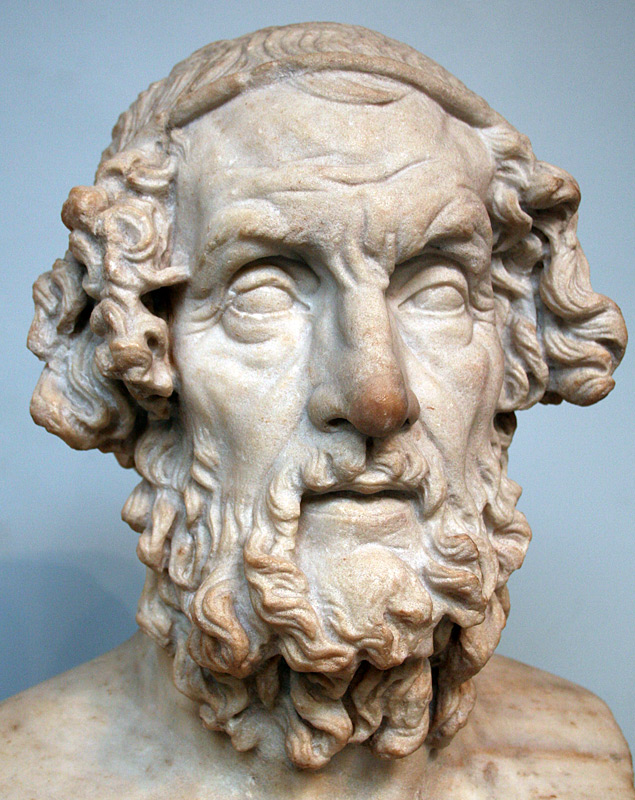Homer słynne cytaty
„(…) wolooka (czcigodna) Hera (…).”
Boopis (potnia) Here. (gr.)
Iliada
Źródło: 3, 144; 7, 10; 18, 40 i in.
Homer cytaty
„Gdzie wiele rąk, tam łatwa praca.”
Źródło: Wacław Idziak, Biznes, Koszalińskie Wydawnictwo Prasowe, Koszalin 1990, s. 93.
„Muzo! męża wyśpiewaj, co święty gród Troi
Zburzywszy, długo błądził.”
Odyseja
Źródło: I, 1 tłum.L. Siemieński
„Rzeczą człowieka jest walczyć, a rzeczą nieba – dać zwycięstwo.”
Źródło: „Przekrój”, wydania 2898–2914, wyd. Czytelnik, 2001, s. 58.
Źródło: Leksykon złotych myśli, wyboru dokonał K. Nowak, Warszawa 1998.
„Jak los liści na drzewach, taki też los rodu ludzkiego.”
Źródło: Leksykon złotych myśli, wyboru dokonał Krzysztof Nowak, Warszawa 1998.
Homer: Cytaty po angielsku
“Be still my heart; thou hast known worse than this.”
Wariant: Be strong, saith my heart; I am a soldier;
I have seen worse sights than this.
Źródło: The Odyssey
“Beauty! Terrible Beauty!
A deathless Goddess-- so she strikes our eyes!”
Źródło: The Iliad
“Wine can of their wits the wise beguile, Make the sage frolic, and the serious smile”
XIV. 463–466 (tr. Alexander Pope).
Odyssey (c. 725 BC)
Kontekst: Tis sweet to play the fool in time and place,
And wine can of their wits the wise beguile,
Make the sage frolic, and the serious smile,
The grave in merry measures frisk about,
And many a long-repented word bring out.
“The roaring seas and many a dark range of mountains lie between us.”
Źródło: The Iliad
“down from his brow
she ran his curls
like thick hyacinth clusters
full of blooms”
Źródło: The Odyssey
VI. 146–149 (tr. R. Lattimore); Glaucus to Diomed.
Alexander Pope's translation:
: Like leaves on trees the race of man is found,
Now green in youth, now withering on the ground:
Another race the following spring supplies,
They fall successive, and successive rise:
So generations in their course decay;
So flourish these, when those are past away.
Iliad (c. 750 BC)
Źródło: The Iliad
“You wine sack, with a dog's eyes, with a deer's heart.”
I. 225 (tr. Richmond Lattimore); Achilles to Agamemnon.
Iliad (c. 750 BC)
“He lacks the sense to see a day behind, a day ahead.”
I. 343 (tr. Robert Fagles).
Iliad (c. 750 BC)
